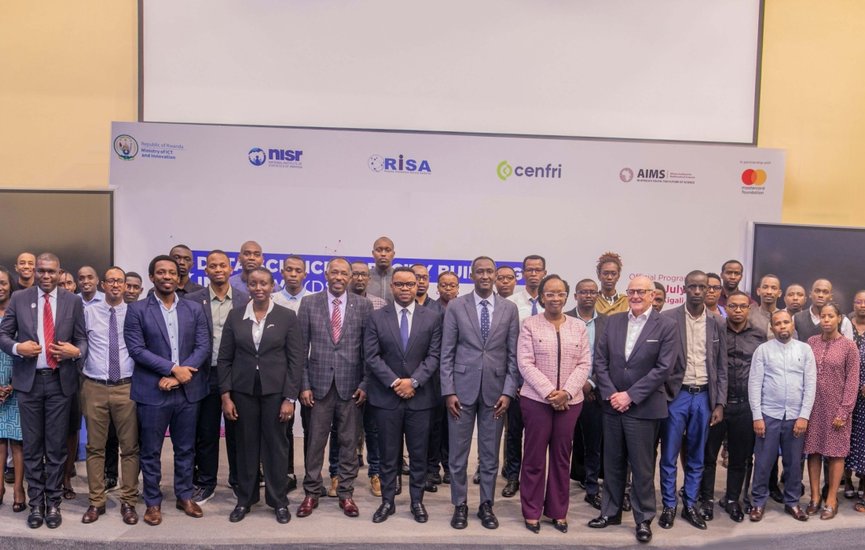A new initiative designed to bridge the data skills gap within Rwanda's public sector has been launched by the National Institute of Statistics of Rwanda (NISR), in collaboration with the African Institute for Mathematical Sciences (AIMS).
Named the Data Science Capacity Building Initiative (DSCBI), the six-month training program is tailored for professionals across Rwanda's National Statistical System (NSS). The initiative aims to equip participants with hands-on data analysis skills, fostering evidence-based policymaking and contributing to the country’s broader development goals.
The Data Science Capacity Building Initiative (DSCBI) was officially launched on July 10 at the NISR Training Centre and Data Science Campus in Nyarugenge, with key government stakeholders joining the inaugural cohort of 50 professionals selected for the programme.
"This is not theoretical training; it’s use case-based," stated Ivan Murenzi, Director General of NISR. "Participants are tackling real data challenges faced by their institutions and learning how to address them using datasets from surveys, systems, and other sources."
Murenzi highlighted Rwanda's shift away from traditional methods of relying solely on census and survey data, emphasizing the growing importance of real-time, evidence-based decision-making in today’s rapidly evolving governance landscape.
"When resources are limited, every decision must be efficient, and for that to happen, leaders must be guided by real evidence," said Ivan Murenzi. "Whether in agriculture, education, or health, we expect this initiative to lead to smarter policies and more effective planning."
In addition to the technical training, NISR is also developing tailored programmes for senior government leaders, including ministers, permanent secretaries, and heads of institutions, to help them understand how data can enhance the quality of their decisions.
Yves Iradukunda, Permanent Secretary at the Ministry of ICT and Innovation (MINICT), praised the programme, calling it a pivotal step toward transforming Rwanda into a data-driven society.
"Many government professionals have access to data but lack the skills to extract actionable insights," Iradukunda noted. "This programme directly addresses that gap, empowering participants to use data more effectively in their daily work."
He added, “We’ve already seen how data can pinpoint where interventions are needed—whether it's reducing dropout rates or enhancing education quality. It helps us identify what's working, what's not, and where we need to take action.”
Iradukunda also acknowledged that not all participants have technical backgrounds, but emphasized that the training is structured to support learners at all levels, starting from the basics and progressing to more advanced competencies.
“Trainees must commit to the process and fully apply themselves," he stated. "The future of Rwanda’s data transformation depends on their success. We look forward to celebrating the impact they will make."
Diane Mukakalisa, from the Department of Planning, Monitoring, and Evaluation at the Ministry of Gender and Family Promotion, underscored the significance of the training.
"As a department that works with data daily—particularly gender-related data—we face challenges with some of the newer systems," she explained. "This training offers us a valuable opportunity to build our skills and ensure that the data we collect truly informs development."
